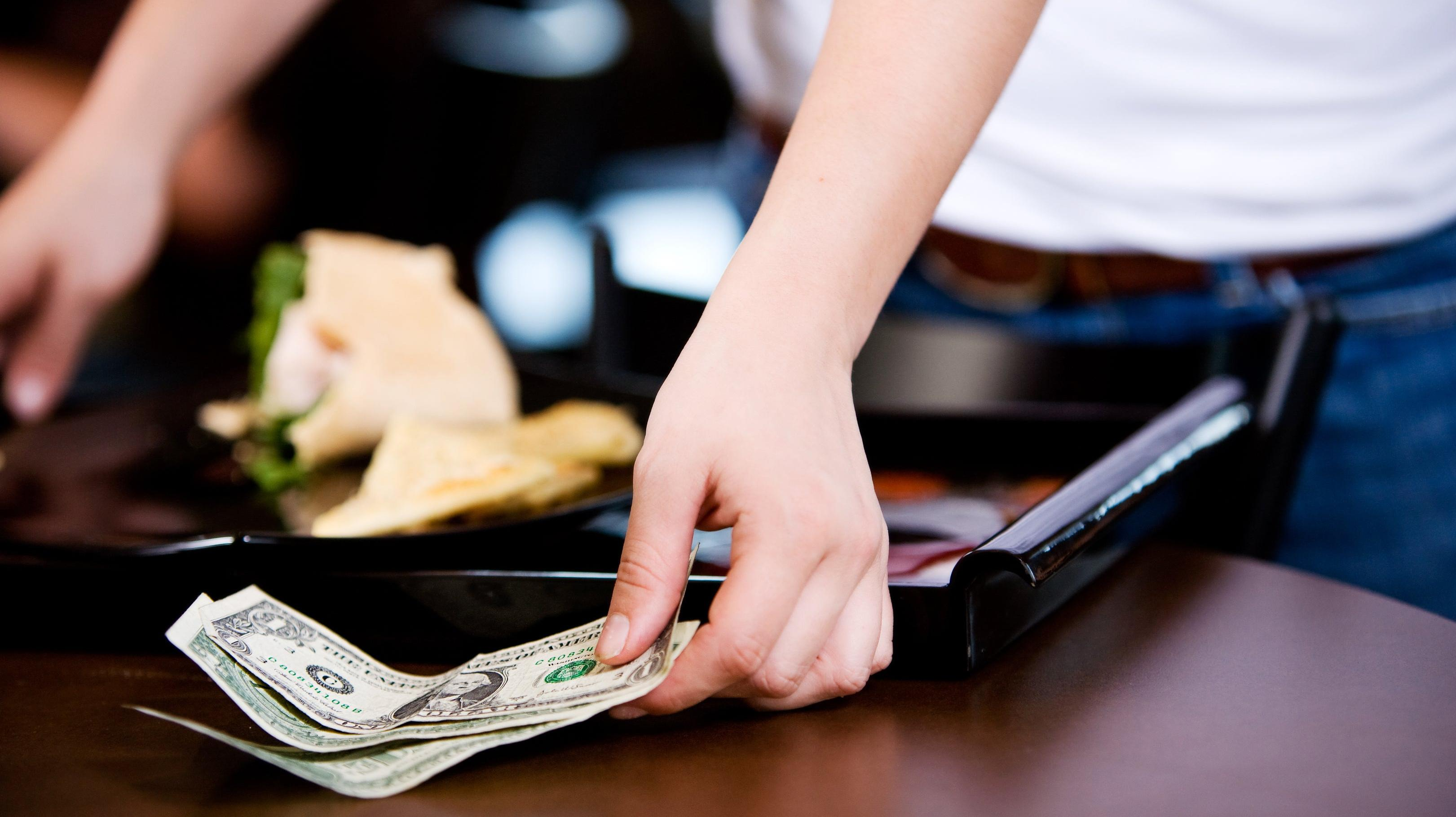These Are All Bad Reasons Not To Leave A Tip
It’s 2022 and people still can’t seem to agree on tipping etiquette.
Should I always tip 20%? What if the service is bad? Should I tip on a takeout order? These are just a few of the questions that constantly swirl around the informal rules and often confusing practice of tipping our servers. No one can seem to agree on the tenets of tipping etiquette, and it looks like the pandemic, as well as advances in point-of-sale systems, have only further confused people.
As revealed by a survey of more than 1,000 Americans conducted by online sports betting publication Play USA, there are a number of inconsistencies in how Americans approach tipping. Yet despite their differences, 86% of respondents consider themselves to be "good tippers."
Tipping habits in the United States
The Play USA survey examined multiple aspects of tipping behavior, such as which types of services get the biggest tips and which generation has the best tippers—but what stands out most are the scenarios in which people do not tip.
Per the survey, 46% of people have neglected to leave a tip because they didn't have cash with them, and 53% have actively chosen not to tip because of bad service they received. I pretty much never carry cash on me, but that's no excuse to be stingy.
The survey looked at tipping across multiple industries, but food-related services were ranked by best- to worst-tipped workers. Traditional restaurant servers were ranked as the best-tipped service workers, but at the same time, coffee shops, takeout operations, food trucks, and restaurants without table service were ranked as some of the worst-tipped workers.
It's obvious that there's still confusion around which types of services or establishments merit a tip. Just under half of the respondents said they do not tip at restaurants without table service, such as Panera or Chipotle. I can understand the logic behind that, but once again, people should remember a service is being provided regardless of whether the employee approaches your table, and the federal minimum wage is still only $7.25 an hour. That amount can vary by state, but even in states with a higher minimum wage, it's rare that the wage alone is livable, and tips are presumed to be part of the equation.
In addition to dealing with union-busting efforts, Starbucks workers are apparently getting the short end of the stick on tips as well. The survey found that only 27% of respondents tip at major coffee shops like Starbucks, even though 49% replied that they will tip at local coffee shops. It's great to support your local businesses, but don't neglect the baristas at larger chains. They help you get your daily caffeine fix just as much as anyone. (Sometimes the Starbucks app doesn't let you leave a tip—but that's no excuse, either. Bring a few singles if you can.)
Why tipping servers still matters
The most disappointing yet illuminating aspect of the tipping discussion is that if we weren't talking about the U.S., none of this would matter quite so much. The practice of tipping and the debates that surround it are largely due to the fact that only in the United States are service industry workers paid in a manner that requires a reliance on tips, letting restaurants pay as little as $2.13 per hour so long as tips bring the wages up to the federal minimum.
In recent years, it has become increasingly common for digital payment kiosks to prompt the customer to tip. While this makes some people uncomfortable, it really should only cause discomfort for those who weren't intending to tip at all (which you still have the option to do, by the way). When roughly half of the population doesn't tip when they don't have cash and the other half refuses to tip if service doesn't meet their expectations, I don't blame restaurants for having a built-in system that increases the likelihood of a tip being added to the bill. Per the survey, 51% of people tipped when they normally wouldn't have just because an iPad asked them to.
Though we all have our own ideas of what "deserves" a tip, or how much of a tip to leave, it's undeniable that tipping is an essential part of the dining experience, one the service industry in its current state depends on. Someday our country might adopt a better model for ensuring a living wage for restaurant employees, but until then, don't punish servers for the flaws of a system that will take years to change.
